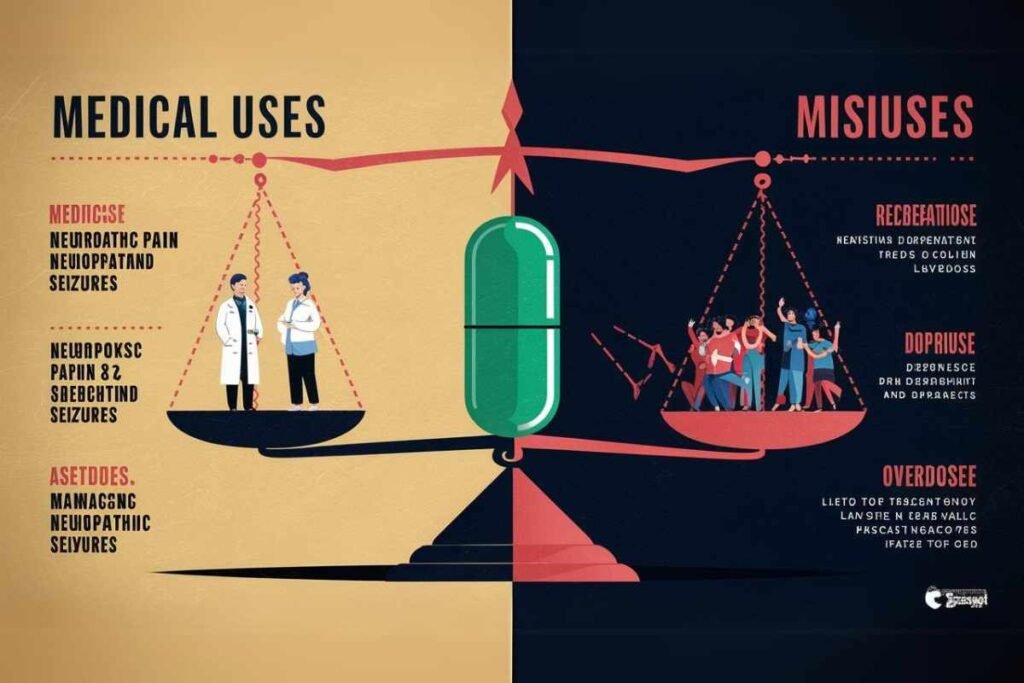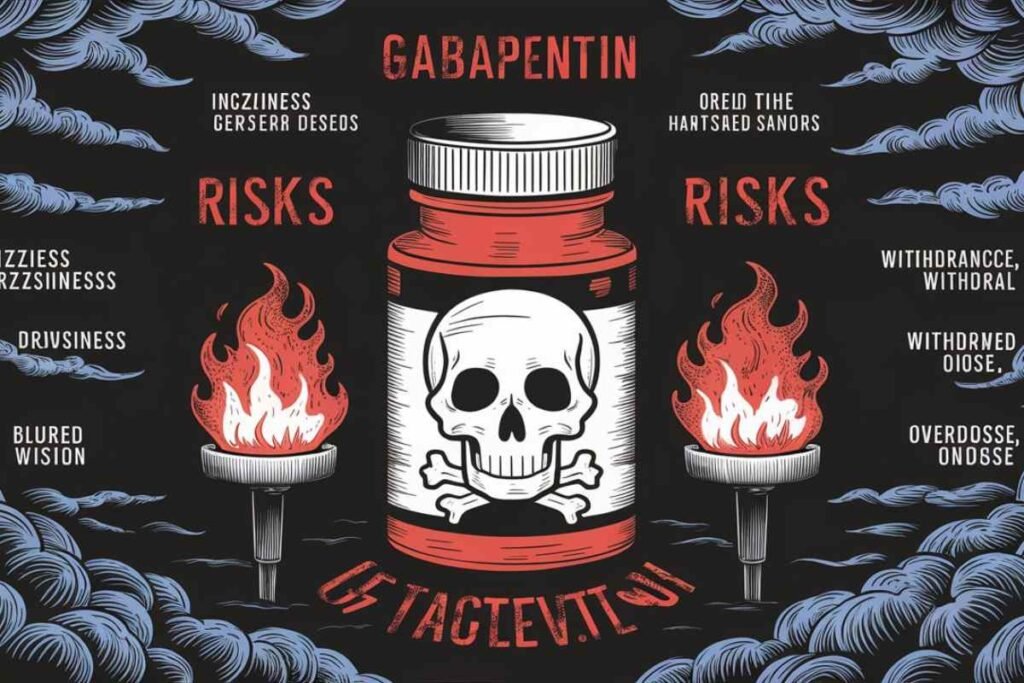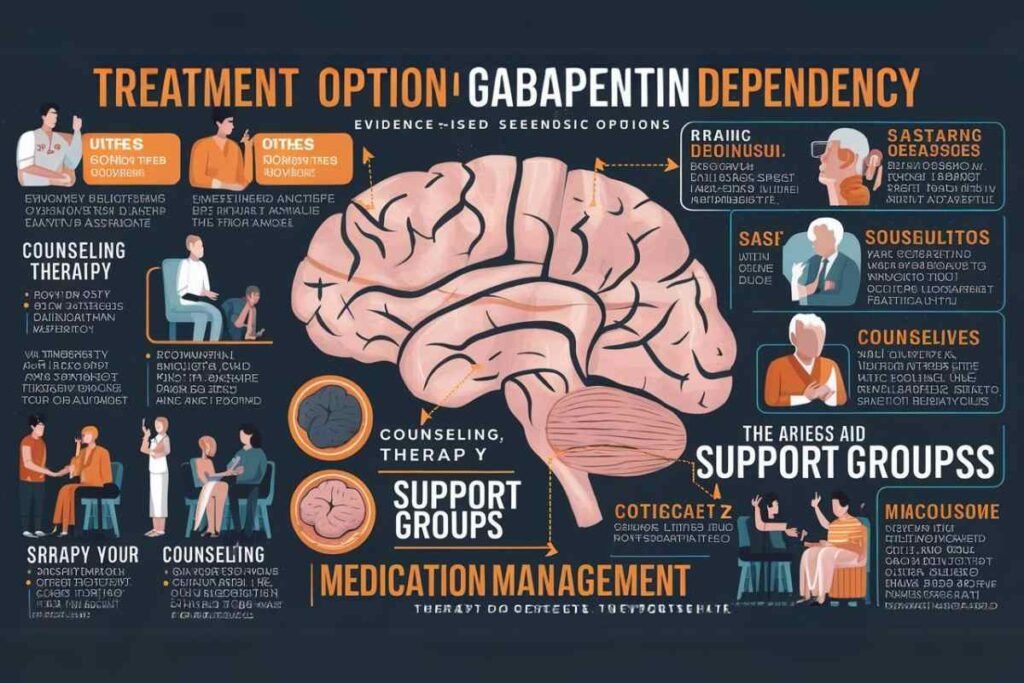Table of Contents
Gabapentin, a medication primarily prescribed for seizures and neuropathic pain, has garnered attention for its potential to cause serious side effects and dependency.
While it can be effective for many, some individuals report that gabapentin has had a profoundly negative impact on their lives.
This article delves into the experiences of those who feel that “Gabapentin Ruined My Life” explores the risks and side effects associated with its use, and outlines available treatment options for those struggling with dependency or addiction.
What is Gabapentin Ruined My Life?
Gabapentin Ruined My Life, sold under brand names such as Neurontin, Gralise, and Horizant, is an anticonvulsant medication used to treat partial seizures, postherpetic neuralgia (nerve pain following shingles), and restless leg syndrome.
It works by modulating neurotransmitter activity in the brain, particularly GABA, to stabilize electrical activity and reduce nerve pain.
Uses and Misuses of Gabapentin

Approved Uses
Partial Seizures: Gabapentin is used as an adjunctive therapy for partial seizures in adults and children over three years old.
Postherpetic Neuralgia: The medication is effective in managing nerve pain following shingles.
Restless Leg Syndrome: Extended-release forms like Horizant are prescribed for this condition.
Off-Label Uses
Gabapentin is also used off-label for conditions such as:
Diabetic Neuropathy: Managing nerve pain associated with diabetes.
Spinal Cord Injury Pain: Alleviating chronic pain from spinal injuries.
Anxiety Disorders: Due to its calming effects, gabapentin is sometimes prescribed for anxiety.
Insomnia: Helping with sleep disturbances.
Misuse and Abuse
Although not classified as a controlled substance, gabapentin is increasingly misused, often in combination with opioids to enhance euphoric effects.
This misuse can lead to serious side effects and addiction, complicating its profile as a safer alternative to opioids.
Risks and Side Effects of Gabapentin

Gabapentin’s side effects can range from mild to severe, impacting various aspects of physical and mental health.
Common Side Effects
Drowsiness and Fatigue: A common side effect that can affect daily functioning.
Dizziness and Coordination Issues: Increasing the risk of falls, particularly in the elderly.
Gastrointestinal Issues: Including nausea, vomiting, and diarrhea.
Visual Disturbances: Blurred vision and unusual eye movements.
Serious Side Effects
Mood and Behavioral Changes: Including depression, anxiety, and suicidal thoughts.
Swelling of Limbs: Edema in arms and legs.
Memory Problems: Cognitive impairment and memory loss.
Sexual Dysfunction: Erectile dysfunction and decreased libido.
Weight Gain: Due to increased appetite.
Withdrawal Symptoms
Abrupt discontinuation of gabapentin can lead to withdrawal symptoms, such as:
Insomnia: Difficulty sleeping and restlessness.
Nausea and Vomiting: Gastrointestinal distress.
Anxiety and Agitation: Increased nervousness and irritability.
Sweating and Tremors: Physical signs of withdrawal.
Stories of Impact: “Gabapentin Ruined My Life”

Many individuals have shared their experiences with gabapentin, highlighting the drug’s potential to cause significant harm.
These personal accounts often include the development of dependency, severe side effects, and challenges in discontinuing the medication.
Dependency and Addiction
Despite its non-opioid classification, gabapentin can cause physical dependence, especially with prolonged use.
Some users report escalating doses to achieve the same therapeutic effect, leading to misuse and addiction.
Case Study 1: Jane’s Story
Jane, a 45-year-old woman, was prescribed gabapentin for postherpetic neuralgia. Over time, she found herself increasing the dosage without her doctor’s guidance, seeking relief from persistent pain.
Eventually, Jane developed a dependency, experiencing severe anxiety and withdrawal symptoms whenever she attempted to reduce her dosage.
Her life became consumed by the need to maintain her gabapentin intake, affecting her job and personal relationships.
Side Effects Leading to Detrimental Life Changes
Gabapentin’s side effects can severely impact quality of life, leading to significant physical and mental health challenges.
Case Study 2: Mark’s Experience
Mark, a 38-year-old software engineer, began taking gabapentin for restless leg syndrome. Initially, the medication provided relief, but he soon experienced side effects like extreme drowsiness and cognitive impairment.
Mark struggled to concentrate at work, leading to a decline in his performance and eventual job loss.
His personal life also suffered, with mood swings and weight gain affecting his relationships and self-esteem.
Treatment Options for Gabapentin Dependency

For those struggling with gabapentin dependency or addiction, several treatment options are available.
These programs aim to provide a comprehensive approach to recovery, addressing both the physical and psychological aspects of addiction.
Medical Detoxification
A medically supervised detox program can help manage withdrawal symptoms safely. This involves gradually reducing the dosage of gabapentin under medical supervision, minimizing the risk of severe withdrawal effects.
Outpatient and Inpatient Rehab Programs
Outpatient Rehab: Suitable for individuals with milder dependencies, outpatient programs offer flexibility, allowing patients to maintain daily responsibilities while receiving treatment.
Inpatient Rehab: For more severe cases, inpatient programs provide a structured environment with 24/7 medical and psychological support.
Therapeutic Interventions
Cognitive Behavioral Therapy (CBT): Helps individuals understand and change patterns of thinking and behavior related to their addiction.
Group Therapy: Provides peer support and shared experiences, fostering a sense of community and mutual understanding.
Individual Counseling: Offers personalized guidance and support tailored to the individual’s needs.
Holistic Approaches
Incorporating holistic therapies can enhance overall well-being and support recovery. These may include:
Mindfulness and Meditation: Techniques to reduce stress and improve mental clarity.
Exercise and Nutrition: Promoting physical health and well-being.
Art and Music Therapy: Creative outlets for expressing emotions and coping with addiction.
Additional Information and Support

For more information on gabapentin and support resources, consider the following:
National Institute on Drug Abuse (NIDA): Provides comprehensive information on medication abuse and treatment options.
Substance Abuse and Mental Health Services Administration (SAMHSA): Offers resources and a national helpline for those seeking help with substance abuse.
Local Addiction Treatment Centers: Many communities have centers that specialize in treating medication dependency and can provide tailored support and treatment plans.
By understanding the potential risks and being informed about treatment options, individuals can better navigate the challenges associated with gabapentin use and work towards a healthier, more balanced life.
Conclusion
Gabapentin, while effective for treating various medical conditions such as seizures and neuropathic pain, poses significant risks including severe side effects and the potential for dependency.
Personal stories of how “Gabapentin Ruined My Life” highlight the drug’s profound impact on individuals, underscoring the need for careful management and awareness of its risks.
Understanding these dangers, recognizing the signs of misuse, and knowing the available treatment options are crucial steps in addressing gabapentin dependency.
For those affected, seeking professional help and exploring comprehensive treatment programs can pave the way toward recovery and improved quality of life.
FAQs
What is gabapentin used for?
Gabapentin is primarily prescribed for seizures, postherpetic neuralgia (pain after shingles), restless leg syndrome, and sometimes for conditions like diabetic neuropathy and anxiety.
Can gabapentin be addictive?
Yes, gabapentin can lead to physical dependence, especially with long-term use or misuse. It’s not classified as a controlled substance but can cause addiction-like behaviors.
What are common side effects of gabapentin?
Common side effects include drowsiness, dizziness, gastrointestinal issues (nausea, vomiting), and mood changes (anxiety, depression).
How does gabapentin affect mental health?
It can cause mood swings, depression, anxiety, and in some cases, suicidal thoughts. These effects vary depending on the individual.
Is gabapentin safe to take with other medications?
It’s important to consult a doctor before combining gabapentin with other medications, especially opioids or those affecting the central nervous system, due to potential interactions.
What should I do if I think I’m dependent on gabapentin?
Seek medical advice promptly. A doctor can help taper off the medication safely to manage withdrawal symptoms and may recommend addiction treatment programs if needed.
Are there alternative treatments to gabapentin?
Depending on the condition, alternatives may include other medications, physical therapy, or non-drug therapies like acupuncture or cognitive behavioral therapy (CBT).
Where can I find more information and support about gabapentin dependency?
Resources like the National Institute on Drug Abuse (NIDA) and Substance Abuse and Mental Health Services Administration (SAMHSA) offer comprehensive information and support for individuals struggling with medication dependency, including gabapentin.


